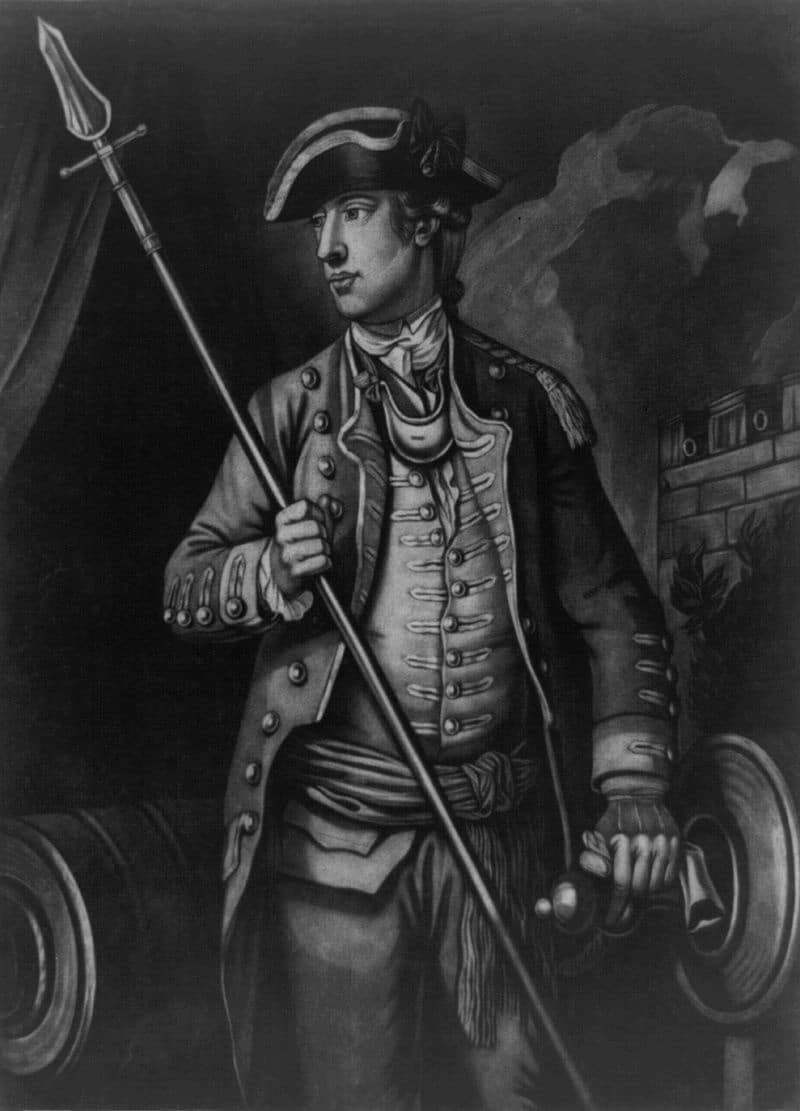David Wooster was an American general who served in the French and Indian War and in the American Revolutionary War. He died of wounds sustained during the Battle of Ridgefield, Connecticut. Cities, schools, and public places were named after him.

He has been called "a largely forgotten hero of the Revolution."
Jump to:
David Wooster Facts: Early Life
David Wooster was born in Stratford, in Connecticut Colony, founded by Thomas Hooker. He entered Yale College in 1735 and graduated in 1738.
In 1739, following the outbreak of war between Britain and Spain, he joined the colonial militia as a lieutenant but apparently saw no action. In 1741, he was named lieutenant of a ship of the Coast Guard, which the colony had established to protect against potential Spanish attack. He was later promoted to captain.
When the French and Indian War broke out, he served from 1755 to the war's end in 1761, during which he was promoted to colonel and given command of the 3rd Connecticut regiment. In 1758, his regiment was at the disastrous Battle of Carillon before Fort Ticonderoga, and in 1759 at the successful capture of Ticonderoga.
David Wooster Facts: American Revolution
When the American Revolution broke out with the Battles of Lexington and Concord, Wooster was in charge of the militia at New Haven. Benedict Arnold wanted to march with his militia company in support of the cause, but Wooster tried to deny Arnold access to the militia's weapons stores.
Arnold's threats were persuasive, and Wooster opened the magazine to him. Wooster was first given command as a major general of Connecticut militia companies sent to defend New York City against possible British troop landings. When the Continental Army was established, Wooster was commissioned a brigadier general, and his troops were sent to be part of General Philip Schuyler and General Richard Montgomery's 1775 invasion of Quebec.
Wooster participated in the Siege of Fort St. John in the fall of 1775 and was then given military command of Montreal after that city fell in November. He assumed command of all the forces in Quebec following the death of Montgomery in the Battle of Quebec at the end of December 1775.
Wooster's management of Montreal was marked by difficult relations with the villagers, as efforts to rein in Loyalist activity ended up frustrating even sympathetic locals. He was eventually charged with incompetence over his tenure at Montreal; the court-martial cleared him.
In April 1776, Wooster took reinforcements to relieve General Arnold, who was besieging Quebec City. Wooster was only briefly in command there as General John Thomas arrived at the end of April. In early May, British reinforcements arrived at Quebec, and the army was routed, eventually retreating in disarray back to Fort Ticonderoga in July.
Wooster returned to Connecticut, where he assumed command of the entire provincial militia responsible for the state's defense as the state's first major general.
British General William Tryon launched an expedition in April 1777 to raid a Continental Army supply depot at Danbury, Connecticut. On April 25, about 2,000 British troops landed near Fairfield and marched inland, reaching Danbury without resistance on the morning of April 26.
They chased away the small garrison, destroyed a large number of supplies, and set fire to parts of the town. When Wooster was alerted to this movement, he notified General Arnold, who was visiting his family in New Haven, and set about calling out the militia to oppose the action.
Arnold took several hundred men to set up a position at Ridgefield, while Wooster took a smaller detachment to harass the rear of Tryon's column as they returned to the coast. His first attack caught Tryon by surprise, but he was prepared for Wooster's second attack, which was made as the column neared Ridgefield. Wooster was mortally wounded when the Redcoats unlimbered six artillery pieces and opened fire.
He was taken to the Dibble House in Danbury, where he died on May 2, 1777. Wooster's final words were, "I am dying, but with a strong hope and persuasion that my country will gain her independence."
